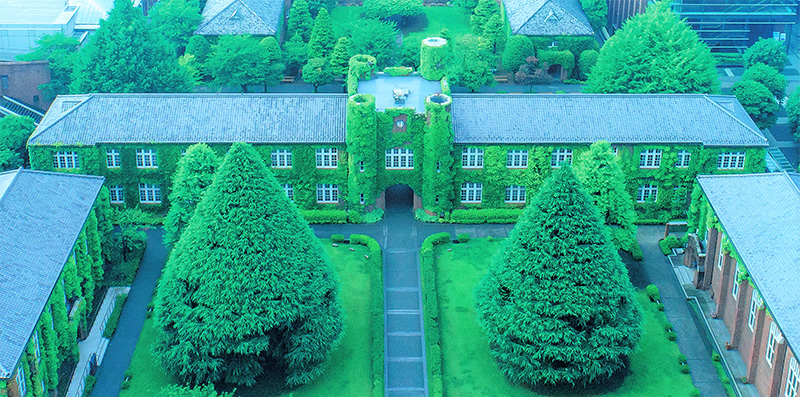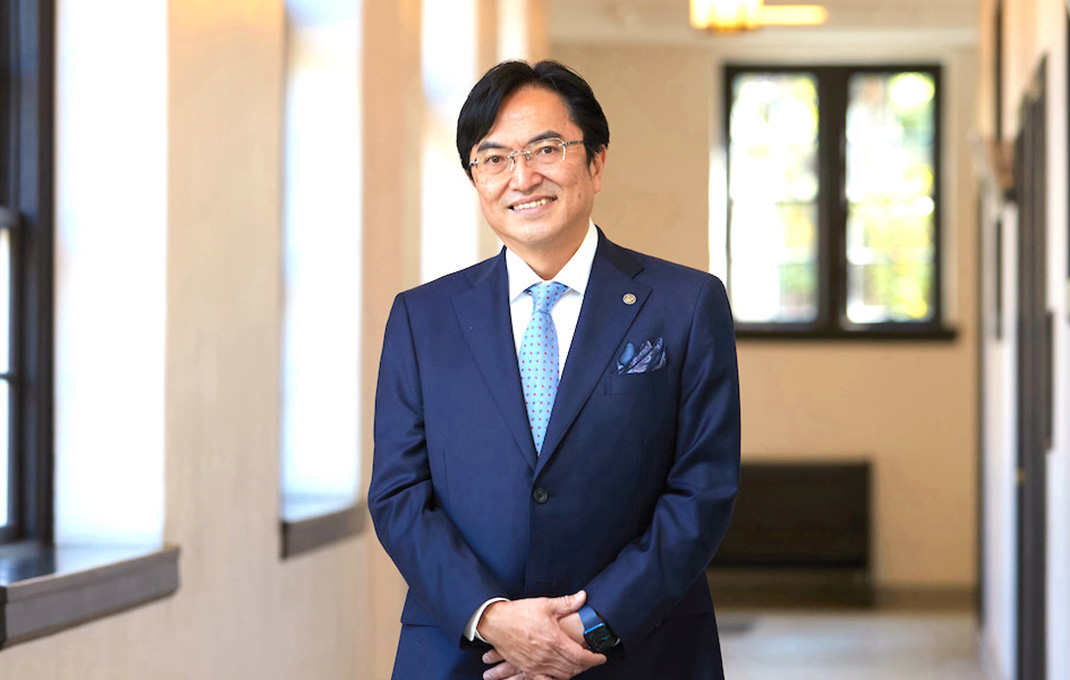May 08, 2024PRESS RELEASE
Fostering environmental leaders for a new era
- Rikkyo unveils outline of new College of Environmental Studies planned for April 2026 launch -
Keyword:INFORMATION
OBJECTIVE.
Rikkyo University is set to establish a College of Environmental Studies at its Ikebukuro Campus with the aim of nurturing the next generation of environmental leaders. The college is scheduled to be launched in April 2026. It will recruit students from a diverse range of fields in the humanities, social or natural sciences. We will provide education that builds upon our longstanding foundation of liberal arts, global studies, and leadership education. Emphasizing learning from field studies both in Japan and abroad, the college aims to develop students’ “connecting capabilities” to engage in dialogue and collaborative work with a variety of specialists and stakeholders.
With the establishment of the new college, Rikkyo will be a university that encompasses 12 colleges, 28 departments, 10 courses and one program, further facilitating interdisciplinary education that transcends the traditional boundaries between the humanities and the sciences.

Name of new department, annual admission quota, enrollment capacity, etc.
- Name of college: College of Environmental Studies
- Name of department: Department of Environmental Studies
- Name of degree: Bachelor of Arts and Sciences
- Student quotas: Annual admission quota is 204, enrollment capacity is 816
- No. of faculties: 18
- Scheduled establishment: April 2026
- Location: Rikkyo University, Ikebukuro Campus
Admission policy
- Knowledge
To pursue environmental studies, prospective students should have diverse interests and a willingness to study a wide range of high school subjects, whether from the humanities, social sciences or natural sciences, as well as having an interest in how these subjects connect to actual issues.
- Attitude/stance
Applicants should show an interest in phenomena and environmental changes taking place in our society. They should have a willingness and attitude for identifying and addressing issues from broad and multi-faceted viewpoints. Applicants should be interested in collaborating with individuals who have diverse values and perspectives.
Intended Learning Outcomes
- Students will acquire basic knowledge about environmental studies from broad viewpoints, such as natural and social sciences and the humanities, linking their knowledge to actual issues.
- Students will be capable of scientifically grasping the natural environment and utilizing technologies and academic knowledge related to social and economic systems from their respective standpoints.
- Students will be able to establish connections among various stakeholders and specialists in different fields through dialogue, developing collaborative relationships while contributing to the sustainable development of regional and international society.
- Students will comprehend the concept of environmental justice and be capable of taking action to solve environmental issues and accelerate the transformation for a sustainable society.
Features of learning
- Liberal arts education combining humanities, social and natural sciences, with an emphasis on sciences
Half the faculty will consist of members with a background in the natural sciences. The college offers a liberal arts education that integrates diverse disciplines, focusing on natural sciences, with the environment as the main theme. The college will accept applications from a wide range of students, regardless of their interests in humanities, or social or natural sciences, thus providing a substantial educational base.
- Fostering leadership through dialogue and collaborative work
Individual students will acquire skills necessary for dialogue and collaborative work, capitalizing on and nurturing their individuality and strengths through Rikkyo’s unique leadership education. The goal is to cultivate the next generation of environmental leaders who will help achieve sustainable development through such means as green transformation (GX) and carbon neutrality.
- Nurturing practical abilities through field learning
The college will provide students with project-based learning, field studies in Japan and abroad, as well as experiences to collaborate with members of societies. These opportunities will deepen students’ learning and enable them to develop high-level practical skills, problem-solving abilities, and "connecting ability" through dialogue and collaboration.
Possible future careers after graduation
- International agencies, the Ministry of Environment, and other governmental ministries and agencies, as well as local governments
- Non-profit and non-governmental organizations related to the environment and sustainability in Japan and abroad
- Companies actively addressing environmental issues and sustainable development goals (SDGs)
- Companies that prioritize network-building and leadership abilities in their personnel
- Graduate schools in Japan and abroad, etc.
Comment by Rikkyo University President Renta Nishihara
